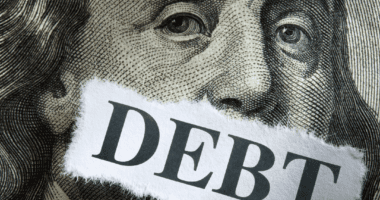The Latest Threat to Student Debt Cancellation
While we await the Supreme Court’s decision on the legality of student debt cancelation, the threats to President Biden’s executive order cancelling up to $20,000 of student debt for Pell Grant recipients or those who earn $125,000 or less continue to escalate. For the 8.5 million Black borrowers who are hoping for relief from student debt that has limited their life choices that lead to wealth building such as retirement, savings and home ownership, it seems as if justice delayed may be justice denied.
The latest threat to debt relief for the more than 26 million borrowers who applied for student debt cancellation comes from the right-wing faction of Congress, where the process for terminating the President’s executive order on student debt cancellation and the payment pause on student loan. After the Government Accountability Office (GAO) determined that those actions are subject to the Congressional Review Act, a new path for ending student debt cancellation became available.
The Congressional Review Act (CRA) is a tool that Congress can use to overturn rules issued by federal agencies. When the GAO determined that these two orders were eligible for review, 36 conservative senators introduced a CRA resolution challenging the student-debt cancellation executive order and the payment pause. The strategic advantage of using a CRA is that it can fast track the resolution to the Senate floor, and requires a simple majority, only 51 of 100 votes, in the Senate to pass. The question is whether the necessary votes can be secured to advance the CRA resolution to the House.
This latest development is causing student loan recipients a sense of dread, after feeling so much hope. For borrowers, especially Black borrowers, this resolution represents an additional threat to debt relief and the financial and mental stress that are additional burdens to student debt. Blocking student debt cancellation would significantly impact Black borrowers, who owe $53,000 on average and are twice as likely to default on their loans. Additionally, Ed Trust has found that Black borrowers aren’t building wealth through savings, retirement plans, or homeownership due to mounting student debt and systemic income inequality and racism. In light of the inequitable burden of student debt on Black borrowers, advocates need to continue to push Congress and the administration for debt relief policies that advance equity — 26 million Americans are depending on it.
To learn more about Ed Trust’s research on student debt cancellation, visit our Black Student Data Hub.








